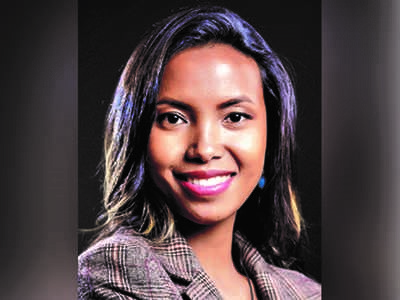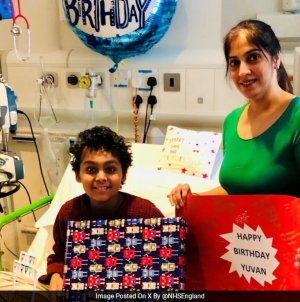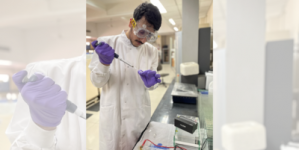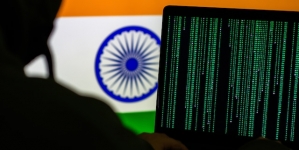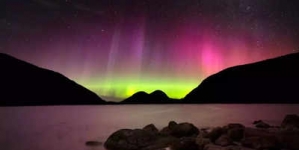-
CANBERRA: India-Australia partnership aims to bridge skill gap for future employment - April 15, 2024
-
HOUSTON: Mumbai boys in the final rounds of FIRST World Robotics competition to be held in Houston - April 14, 2024
-
MADRAS: IIT Madras NPTEL translates thousands of technical courses into several regional languages - April 10, 2024
-
MUMBAI: Shahid Kapoor opens up about the challenges faced by character actors in Bollywood - April 8, 2024
-
NEW DELHI: World Health Day 2024: Date, Theme, History, Significance and Interesting Facts - April 6, 2024
-
LONDON: Indian-Origin Teen In UK Gets “Life-Changing” Cancer Treatment - April 3, 2024
-
BENGALURU: Indian scientists unravel genetic secrets behind lumpy skin disease outbreak - March 30, 2024
-
NEW DELHI: Youngsters’ Increasing Stress Levels, Early Onset of Diseases an Alarming Health Trend: Apollo Hospitals Chief - March 28, 2024
-
MARYLAND: All About Pavan Davuluri, New Head Of Microsoft Windows - March 27, 2024
-
MUMBAI: Pyaar Kiya To Darna Kya turns 26: Kajol says THIS was the symbol of an innocent girl back then - March 27, 2024
ANTANANARIVO: ‘Madagascar’s small fisherfolk respect the sea — they strive to protect ocean life’
ANTANANARIVO: The Mihari network extends over nearly 5,000 kilometres of
my country’s islandic coastline. It brings together thousands of small-scale
fisherfolk with NGOs, government and other stakeholders. We share a common aim
— the protection and restoration of Madagascar’s marine resources. One of the
most crucial steps Mihari has taken towards this is encouraging sustainable
fishing — and small-scale fisherfolk have been the greatest contributors. This
is important, given that these communities are so dependent on fishing for
their livelihoods and survival.
Many of them have not received formal educations and have lacked the
opportunity to work in other sectors. Yet, despite the challenges this holds
out for them, they lead the effort to conserve the life of the seas.

I am always amazed at the knowledge
of the sea which small-scale fisherfolk have. They are not trained in
scientific disciplines but they know a great deal about marine life — they know
the ocean’s currents, its winds, its weather, what its different colours mean.
They understand the science of the sea, including how marine ecosystems support
each other and why different species live in diverse habitats. These fisherfolk
are truly the guardians of the sea. In Madagascar, we say ‘small fisherfolk live
with the sea’ — they rely on it for their livelihoods, but they also love it
deeply.
They understand how the sea changes
over time and the signs by which the ocean communicates to us. The sea is an
unending part of their lives, shared and cherished over generations. The
small-scale fisherfolk are inspired by deep respect for the sea. They only need
to be suitably empowered to help conserve marine life.
The Mihari network, which spans over 200 community associations, invests in
such fisherfolk contributing to the sustainable management of Madagascar’s
marine resources. We build their capacity in fisheries management and its
leadership and communication. We help them find alternative livelihoods, so
that they don’t rely only on fishing — we place them in sectors like
aquaculture and tourism.

We also empower them to put in place
local rules governing marine resources — these include fisheries closures or
bans on unsustainable fishing practices which are respected by all the
communities in the associations. Sometimes, an area has a three month-long
closure period for fishing — our effort is to ensure that these fisherfolk, who
unfailingly follow these rules, don’t suffer for livelihoods at that time.
Locally Managed Marine Areas (LMMAs) have been a very helpful strategy. LMMAs
were first established in the Pacific in the 1990s. We replicated this model in
2004-05 — we have over 200 LMMAs in Madagascar now. These are areas managed by
coastal communities directly, which work at mangrove restoration, developing
alternative livelihoods and maintaining the necessary conventions for
sustainable ecosystems.

Government contracts are often given
for practices like mangrove protection in these locations. NGOs also support
these communities by introducing them to livelihoods like aquaculture, growing
algae or farming. LMMAs put these communities at the centre of conservation —
and Madagascar’s marine resources have benefitted from this approach.
Interestingly, LMMAs in Madagascar developed around an effort to save the
octopus — we started with creating an octopus reserve in the southern region.
Fishing communities worked hard to conserve dwindling octopus numbers and
slowly, with their care and restraint, the population of octopuses began to
grow.

The recovery of this species has
been a great success story brought about by small fisherfolk. Similarly,
fisherfolk have worked to restore coastal mangroves — with healthy mangroves,
there has been a return of shrimps, crabs, lobsters and mackerel, which are
then further helped by the fishing bans maintained through certain months by
LMMAs. The ocean is a precious resource and we should all be thankful to it. It
is deeply cultural for our fisherfolk communities, who pray to it and conduct
rituals based around the seas.

But the benefits of clean and
healthy seas encompass us all. Millions of people worldwide are sustained by
economic activities drawing on the seas. Yet, we don’t respect the sea enough.
The amount of plastic pollution in the seas, for instance, has grown
exponentially. This is deeply worrying for plastic chokes all ocean life. We
must work harder towards keeping the oceans plastic-free. If we are even able
to breathe, it is due to the thriving life of the seas. As Mihari shows us,
small fisherfolk work diligently to protect such marine life. We can help their
efforts too.



















